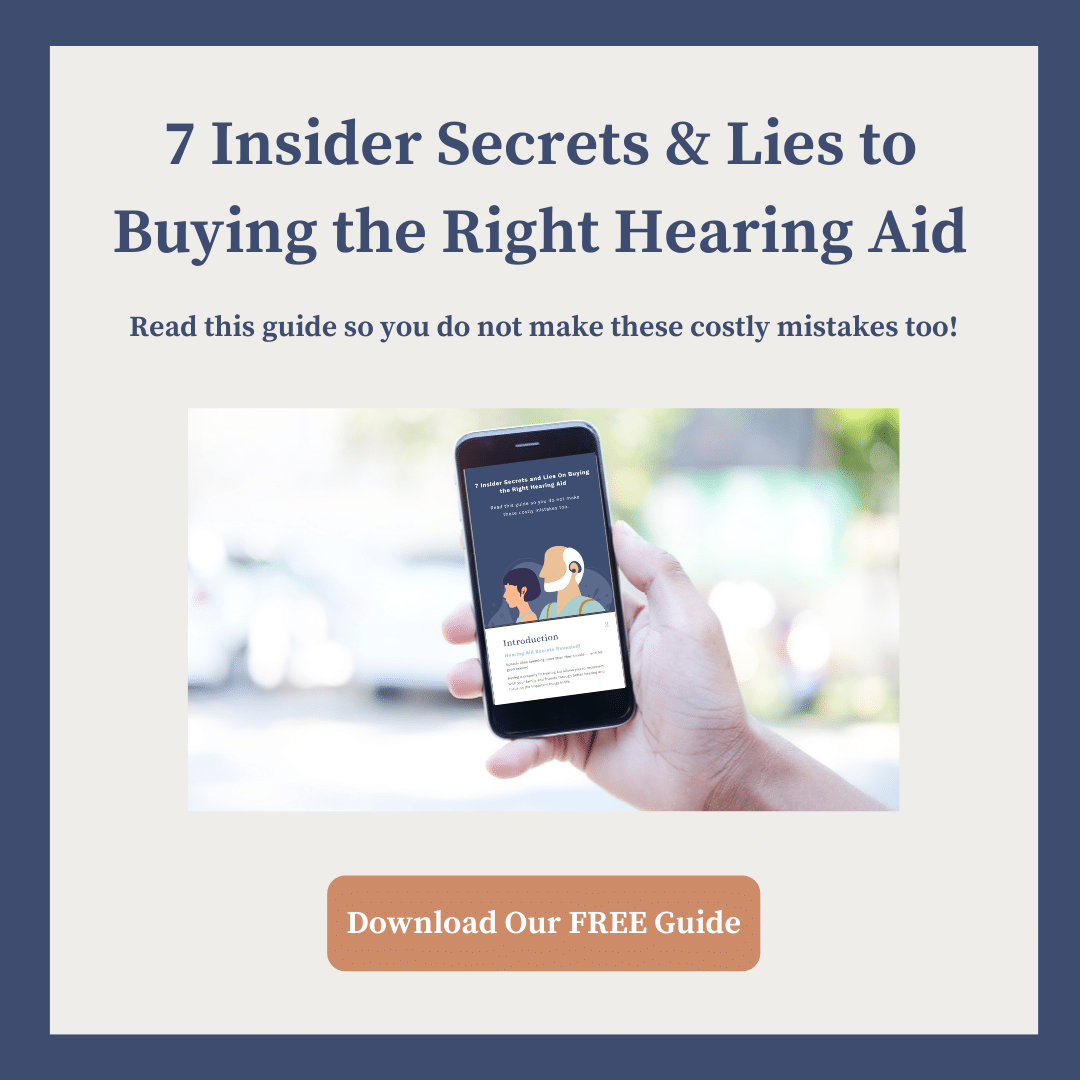Most people don’t think about hearing aids until they need them. This means that there can be a lot of misconceptions when it comes to hearing aids and how they can help optimize your hearing health. The truth is that hearing aids are constantly innovating and changing at a rapid pace, meaning it can be hard to keep up with what’s fact and what’s fiction when deciding on your options. As you work with your Doctor of Audiology, here’s what to know about hearing aids and what they can do for you.
Myth #1: Hearing aids are only for old people
Although most people have a picture in their head of hearing aids that are ancient, loud, and feedback constantly, modern hearing aids actually come with some extremely sophisticated technology that young people can take advantage of. Things like Bluetooth® connectivity, AI adjustment, and even direct streaming from your devices means that you can integrate hearing aids with your lifestyle— and even enhance it!
Myth #2: Hearing aids are big and unwieldy
There are plenty of different types of hearing aids, and not all of them are big or stand out. Some types of hearing aids can be completely concealed inside your ear, and even the bigger models come in different colors and can be accessorized. Modern hearing aids can be a stylish part of your look.
Myth #3: Hearing aids are only for people with advanced hearing loss
Hearing aids can be helpful at all stages of hearing loss— and they can even be more helpful in the early stages by helping to preserve your hearing. The truth is that hearing ability and cognitive function are intimately linked, meaning getting hearing aids during the early stages of hearing loss is an integral part of maintaining your health.
Myth #4: Hearing aids are unaffordable
Although the cost of hearing aids reflects the sophisticated technology used to make them, that doesn’t mean they’re out of budget for most people. There are more options than ever for hearing aids like financing, payment plans, and organizations dedicated to helping people afford hearing aids. Additionally, many hearing aids come with manufacturer warranties that can help offset the cost of things like maintenance and batteries.
Myth #5: Hearing aids can’t help tinnitus
Ear ringing is particularly frustrating, but hearing aids can actually help. This works by providing background noise matched to the precise pitch of your tinnitus to cancel it out so that you can hear everything else clearly instead. Hearing aids are actually one of the best ways to treat tinnitus along with lifestyle changes.
Myth #6: Hearing aids make everything louder
This is a holdover from early hearing aids which actually did make everything louder. Nowadays, hearing aids work digitally by taking in sound, processing it, adjusting it, and then feeding it into your ear at a safe level. This is an extremely precise mechanism that offers unparalleled customization, so you can enjoy sounds comfortably and clearly.
Schedule an Appointment
There’s a lot of misinformation about hearing aids and how they can help, so it’s important to meet with a Doctor of Audiology to learn more. At Hearing Doctors of New Jersey, we can discuss your best options for hearing loss treatment during an appointment at our Livingston office. To learn more and schedule a consultation, we invite you to contact us by calling or filling out our online form.
Click here now to receive your FREE insider’s guide to learn how to make an informed and intelligent decision when purchasing a hearing aid!


